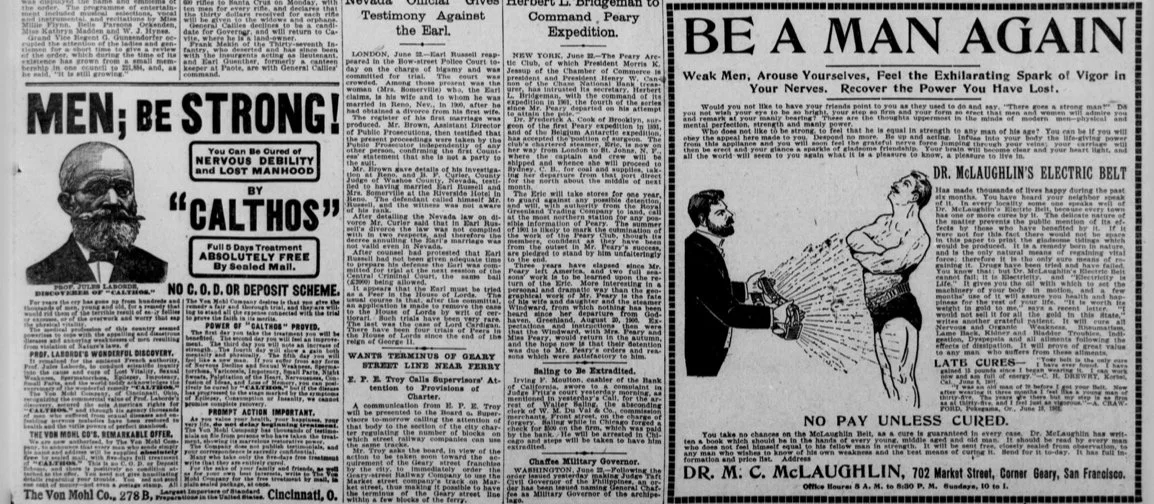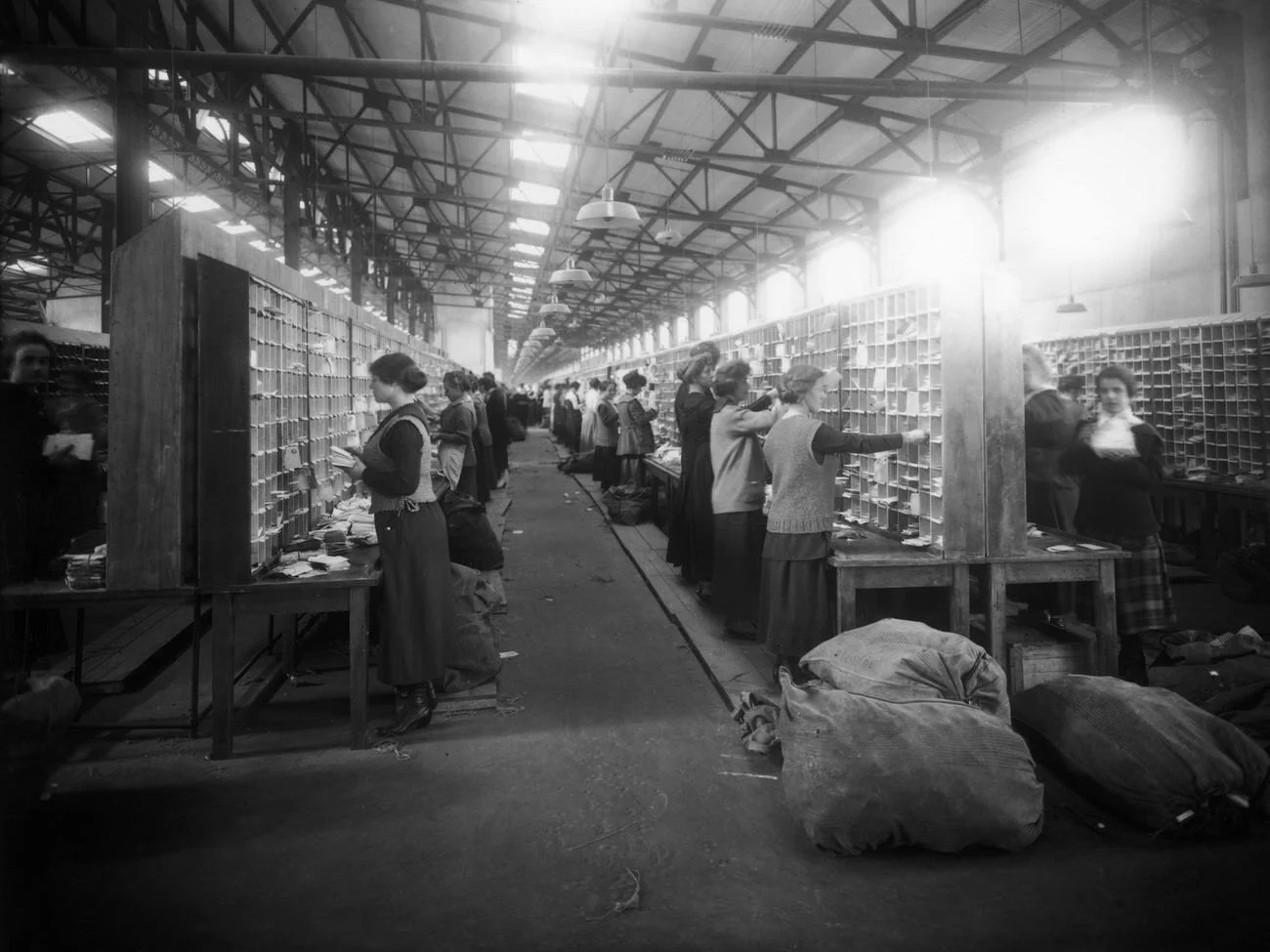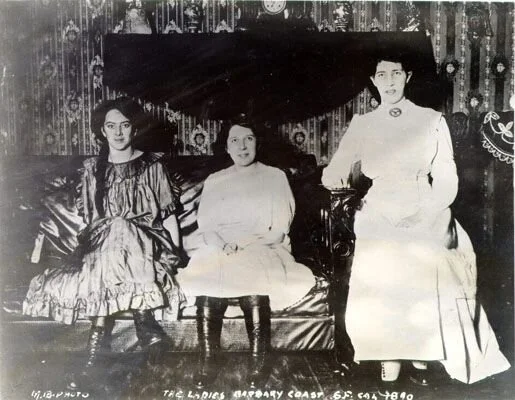A particular area of concern for Progressives that brought together these new areas of expertise and the public health movement were the problems associated with the country’s growing urban areas.
Read MoreThe earliest organized public health efforts, undertaken by a group known as “sanitarians,” were motivated by what they viewed as the interrelated problems of infectious disease and urban pollution. It was the Civil War, however, that “marked a watershed in the history of American public health.” It was then that formalized, state-authorized agencies took a leading role in promoting advances in pathology and chemistry, which led to a range of sanitation regulations.
Read MoreIf we want to understand how and why the process of immigrating to the U.S. came to include provisions to inspect the mental “fitness” of the new arrivals, the first place to start is the historical context (a favorite place to start of all historians). In this case, that context is very rich and telling indeed.
Read MoreAlthough the federal and state governments largely maintained an “open door” to immigrants for the nation’s first century, there were some legal requirements states imposed on the character of arriving residents…
Read MoreI first wrote about this subject more than three years ago when I was part of a team that was examining the role of mental health assessments on immigrants that came to the U.S. attempting to seek asylum...
Read MoreAnti-alcohol campaigns were as old as the city and so too were their failures.
Read MoreThere was very little “respectable” residents or municipal officials could do to limit vice in those early years except perhaps to express outrage. For one, the city “had hardly any government at all” in its first several years. And, actions municipal authorities took against vice did not usually survive long.
Read MoreThe Barbary Coast was the first and most notorious vice district in the city, but it was by no means the only one. As they city grew so too did the number of neighborhoods that hosted saloons, dance halls, and brothels.
Read MoreFor Progressive-era reformers, “vice” in a city represented a sickness, unhealthy habits antithetical to the dignity of modern American society, although ironically, seemingly woven into its very fabric. To many Americans of the period, vice meant anything that did not conform to expected–reformers would say “traditional”–middle-class values.
Read MoreAn important part of the context underlying my project on resisting reform is the conflict San Franciscans faced when thinking about their Gold Rush roots. Many were proud, many were embarrassed, many wanted to maintain the “Spirit of ’49” in the city’s personality, while others thought it was unbefitting the leading city on the west coast.
Read MoreMy 2018 dissertation, “Resisting Reform: San Francisco Vice in the Progressive Era,” has many problems. Unfortunately, the most significant problem is also the one preventing it from becoming anything more: a unifying and interesting story.
Read MoreOne of the recurring and central themes of my project, “Resisting Reform,” is the bottomless well of optimism many reformers in San Francisco had anytime some form of reform was enacted. Most commonly this was in the context of a law by the local or state legislatures or an order by the police.
Read MoreAlthough I could tell pretty quickly that the 1911 report of the Dillingham Immigration Commission, “Changes in the Bodily Form of Descendants of Immigrants,” did not have anything useful for me, I was immediately intrigued when I saw that its lead researcher and author was Franz Boas.
Read More
My research on working women in San Francisco on occasion led me to stories such as the one below about Miss Viola Van Ornum. This particular case caught my attention because of what seems to have been an unusual twist to the story. The basis of the story in the San Francisco Call from June 27, 1901, was a coroner’s inquest.
I have decided to create this special segment–Short Stories–to write them up as I encounter them. I have been reading articles from the early twentieth century about the involvement of the U.S. Public Health Service (USPHS) at Ellis Island. One of them featured a photograph that caught my eye.
Read MoreWhat follows is a think piece of sorts of my involvement in a grant project led by Raquel E. Aldana (Professor of Law) and Patrick Marius Koga, (Professor of Psychiatry, Public Health Sciences; Director, Refugee Health Research). I have been tasked with researching the involvement of mental health professionals in immigration cases in the late nineteenth and early twentieth centuries. They are preliminary observations, almost certainly based on an incomplete understanding of the source material and topic.
Read MoreThat is the topic of a report, volume 15 of 19, concerned with “Woman and Child Wage-Earners in the United States,” published in 1911 by the United States Department of Commerce and Labor. The premise of the investigation was summed up in the opening sentence: “Is the trend of modern industry dangerous to the character of woman?”
Read MoreI have referenced this report once already in a reflection on the phrase “law and order” and quoted one of the more remarkable passages but here I attempt to summarize more of salient points of the report.
Of course, I do not expect to break any new ground. In fact, I expect my observations to be almost completely predictable. Not only in highlighting the racism of the period but also the specific form of its anti-Chinese language and ideas are well known both in the historical context and even in the current period as demonstrated by the xenophobic rhetoric surrounding the coronavirus pandemic. But, I want to write something about this report because it is good practice to write and I am working through my approach to incorporating Chinatown into my project (or not).
Read MoreAs I was doom scrolling Twitter and browsing news headlines this evening, one oft-shouted phrase of the moment (the RNC), particularly salient in the current context, “LAW and ORDER!” kept appearing.
That is all some Republicans have to say to gain the support of many Americans. It is beyond cliche. My mind paused on that requirement of Republican politicians running for office, its ubiquity. (Of course, just to be clear, the headlines and pronouncements today are in the context of the shooting of Jacob Blake in Kenosha, Wisconsin.)
Read MoreI’ve said it often enough that it’ll sound all-too familiar, but historians of women’s history are often at a disadvantage due to a paucity of sources, especially ones written by women. This problem is multiplied when the women in question are working class and then multiplied further when those working women are sex workers.
Recently, I learned about the book Nell Kimball: Her Life As an American Madam. Somehow, unfortunately, in my years of researching my dissertation and writing a chapter on prostitution, I was unaware of its existence. I first read about it in another dissertation, “The Criminalization of Prostitution in the United States: The Case of San Francisco, 1854-1919” by Brenda Elaine Pillors (UC Berkeley, 1982), also a source I was unaware of or did not have the time to actual read while composing my dissertation.
Read More



















